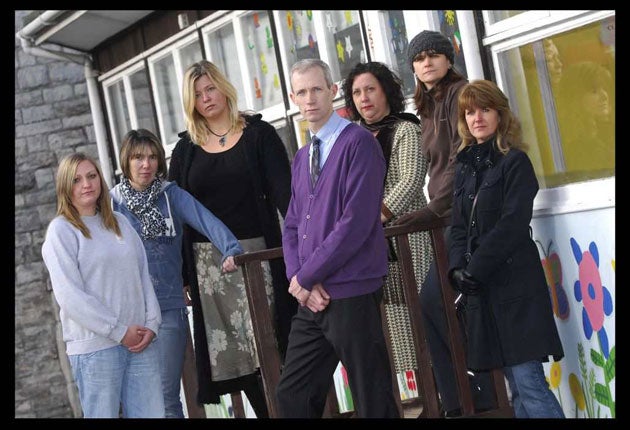Where faith schools are the only schools
Closure of primary leaves parents without non-religious alternative

Parents in Dorset are set to become the first in the country to be denied the chance of sending their children to a non-religious primary school, The Independent has learnt.
Swanage First School in Dorset, described by Ofsted – the education standards watchdog – as "outstanding" in every aspect of the schooling it provides, is threatened with closure despite being the only non-faith school for children aged between four and nine for 16 miles around.
If it closes, as is proposed in a blueprint for schools by the county council, the parents of Swanage First's 140 pupils will have no alternative but to send their children to a faith school.
Parents – many of whom moved to Swanage because of the school's reputation – are angry about the closure threat. Shaun Moyler, who has two children at the school – Alfie, aged seven, and five-year-old Daisy, said: "I'm not anti-faith or pro-faith. I am worried, though. If you're non-faith, you're very low on the list of priorities for being accepted by a faith school.
"You sometimes have to get a letter signed by the vicar saying you've been to church, say, four times in the past year. Many parents can't do that and just have to take places at a school with spare places, not the best one."
The row has reached national level with the British Humanist Association supporting the parents. Andrew Copson, its director of education and public affairs, said: "In any community, and especially in a rural area, school diversity is crucial. As a community school, Swanage First helps promote diversity because it is open to all families, whatever their beliefs."
The Schools minister Jim Knight, whose constituency includes Swanage First, is also backing the school, telling staff and parents at a meeting: "I am supportive of retaining this school as a community school on this site." Under the Dorset plan, education in the area faces a huge reorganisation, largely as a result of dwindling pupil numbers. At present, unlike most other authorities, it has a first, middle and upper school system, with children attending a first school between four and nine, moving to a middle school until they are 13, then transferring to an upper school. The review plans to bring in traditional primary and secondary schools, with a switch at age 11.
In a statement, John Nash, the council's director for children and young people, and Toni Coombs, the councillor for children's services, say the present situation cannot deliver the best education "because there are too many empty places in our schools". The council review says: "The first schools in the area could accommodate up to 2,025 pupils. There are only 1,459."
It proposes closing both the school and Swanage's Church of England first school, and opening one on a new site which would "respect the faith tradition of St Marks [C of E school] and the ethos of Swanage First School". "It would be committed to inclusive education, where children are welcomed whatever their background," it says.
Paul Mason, the school's headteacher, said: "Swanage will have a Roman Catholic primary school, a new Church of England school and no community school for 16 miles. It's not right."
Join our commenting forum
Join thought-provoking conversations, follow other Independent readers and see their replies
Comments